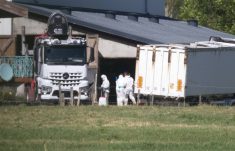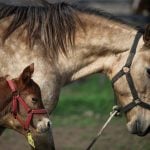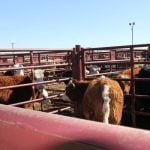Three farms found to have had “contact” with an nearby avian flu-infected turkey farm in Manitoba’s southern Interlake region are all now in the clear.
The Canadian Food Inspection Agency on Thursday announced it had lifted the Dec. 2 quarantines on the three farms, as test results all came up negative for reportable avian influenza.
That leaves just two related quarantines in place: the originally infected turkey breeding operation in the RM of Rockwood, and a nearby hatchery operation that’s now been “depopulated” of its eggs and poults.
Read Also

U.S. livestock: Cattle fall sharply as Trump says he’s working to lower beef costs
Chicago cattle futures fell sharply on Friday after U.S. President Donald Trump said his administration was working to lower the…
The hatchery is now being cleaned and disinfected, CFIA said in a statement Thursday. The original infected farm’s birds were all destroyed as of Nov. 29 and disposal of those animals is now “underway.”
The infected farm will remain under quarantine for 21 days following agency approval of the cleaning and disinfecting of the premises and equipment, CFIA said.
The virus in the birds at the Rockwood farm was confirmed Nov. 25 as a low-severity (“low-path”) strain of avian influenza H5N2, but still the province’s first-ever on-farm case of notifiable avian flu.
Last month’s confirmation allowed Canada to keep its World Organization for Animal Health (OIE) status as free of “high-path” bird flu, which it regained in April 2008 after cleanup of an outbreak of high-path H7N3 on a poultry farm near Regina Beach, Sask.
Bird flu can be devastating on an affected commercial poultry farm, but human health experts’ concern is that a “high-path” strain such as the infamous H5N1 could mutate or combine with another flu virus such as H1N1 that could spread more easily between people.
Avian flu is not a food safety risk when poultry and poultry products are properly handled and cooked.
All that said, the Reuters news agency reported Thursday from Beijing that the Chinese government, citing the OIE’s reports on the case, has banned imports of poultry and poultry products from Manitoba.















